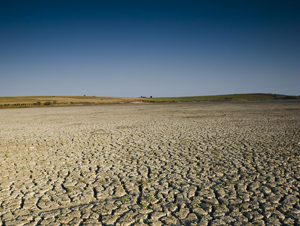
Natural Resource Management as a Key to Peacebuilding
On September 16, Shamim Niazi wrote a guest post on Wilson Center’s New Security Beat blog on how to achieve peace in Afghanistan. In the post, Niazi argues that natural resource management is often a key in the peacebuilding process:
In a poor country like Afghanistan, natural resources provide a large proportion of the wealth and can provide a foundation for sustainable development if their value is recognized and respected. It has also been proven that good environmental design at the beginning of development efforts and other large projects (e.g., infrastructure and energy projects) eventually pays off. The government has to build stronger inter- and intra-organizational coordination between its own agencies and with donors to help achieve these goals. In addition, donors should work to harmonize their plans and activities more effectively in order to help develop the capacity of the environmental sector. UNEP’s conflict resolution tools and strategic environmental assessments are both valuable tools in this context.
Using his own experiences in Afghanistan and the UNEP’s report on Natural Resource Management and Peacebuilding in Afghanistan, Niazi makes a strong argument that should be taken seriously as international forces begin to leave the country.
Niazi’s argument that natural resource management is the way forward in Afghanistan has been, and can be, made regarding conflicts internationally. The WTO argues that natural resource management can support adaptation to climate change, buffer communities from some of the worst extreme weather events, and offer opportunities to reduce carbon emissions. While this may be the case, views have differed over the years as to whether natural resources are a “blessing” or a “curse” for developing countries.
Paul Collier, an expert on the economics of civil war, estimates that close to 50 armed conflicts that were active in 2001 had a strong link to natural resource exploitation. A developing country’s economic well-being through economic modernization is often dependent on its natural resources. If a country has a wealth of natural resources, its economic development is complexly related to its governmental system. If the government receives most of its income from natural resources, it has less incentive to share power or act democratically. Additionally, poor governmental management and oversight can accelerate economic decline and encourage internal conflict over resources.
Niazi’s broader argument of natural resource management as a peacebuilding tool is a strong one. Natural resources are integral to identity and therefore state stability. Already international negotiations have provided ways to mediate conflicts and build peace, for example using the Sava River to build peace in the former Yugoslavia. It is important to expand the use of natural resource management to prevent conflict and build peace.






[…] Natural Resource Management as a Key to Peace Building […]